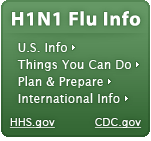
Childhood Central Nervous System Atypical Teratoid/Rhabdoid Tumor Treatment (PDQ®)–Health Professional Version
SECTIONS
- General Information About Childhood Central Nervous System (CNS) Atypical Teratoid/Rhabdoid Tumor
- Tumor Biology of Childhood CNS Atypical Teratoid/Rhabdoid Tumor
- Stage Information for Childhood CNS Atypical Teratoid/Rhabdoid Tumor
- Treatment of Newly Diagnosed Childhood CNS Atypical Teratoid/Rhabdoid Tumor
- Treatment of Recurrent Childhood CNS Atypical Teratoid/Rhabdoid Tumor
- Current Clinical Trials
- Changes to This Summary (04/04/2018)
- About This PDQ Summary
- View All Sections
Changes to This Summary (04/04/2018)
The PDQ cancer information summaries are reviewed regularly and updated as new information becomes available. This section describes the latest changes made to this summary as of the date above.
This summary was comprehensively reviewed.
Added Dho et al. as reference 3. Also revised text to state that AT/RT has been linked to somatic and germline mutations of SMARCB1 and, less commonly, SMARCA4, both of which are tumor suppressor genes (cited Hasselblatt et al. as reference 4).
Added text to include increased head circumference as a presenting symptom of AT/RT.
Added text to state that up to 35% of patients may present with germline mutations and be prone to synchronous, multifocal tumors. Also added Bartelheim et al., Bourdeaut et al, and Seeringer et al. as references 12, 14, and 15, respectively.
Added text to state that loss of SMARCB1/SMARCA4 staining is a defining marker for AT/RT. Also added text to state that less commonly, SMARCA4-negative (with retained SMARCB1) tumors have been described (cited Hasselblatt et al. as reference 10).
Added text to state that in the European Registry for rhabdoid tumors series, radiation therapy was also associated with an improved survival, with a 6-year overall survival rate of 66% in irradiated patients (cited Bartelheim et al. as reference 10 and level of evidence 3iA).
Revised text to state that there is no standard treatment for children with recurrent AT/RT. Trials of molecularly targeted therapy are ongoing.
Added text to state that the APEC1621C treatment arm of the APEC1621 trial utilizes tazemetostat, an EZH2 inhibitor, which may be of particular interest for children with recurrent AT/RT.
This summary is written and maintained by the PDQ Pediatric Treatment Editorial Board, which is editorially independent of NCI. The summary reflects an independent review of the literature and does not represent a policy statement of NCI or NIH. More information about summary policies and the role of the PDQ Editorial Boards in maintaining the PDQ summaries can be found on the About This PDQ Summary and PDQ® - NCI's Comprehensive Cancer Database pages.





















.png)










No hay comentarios:
Publicar un comentario